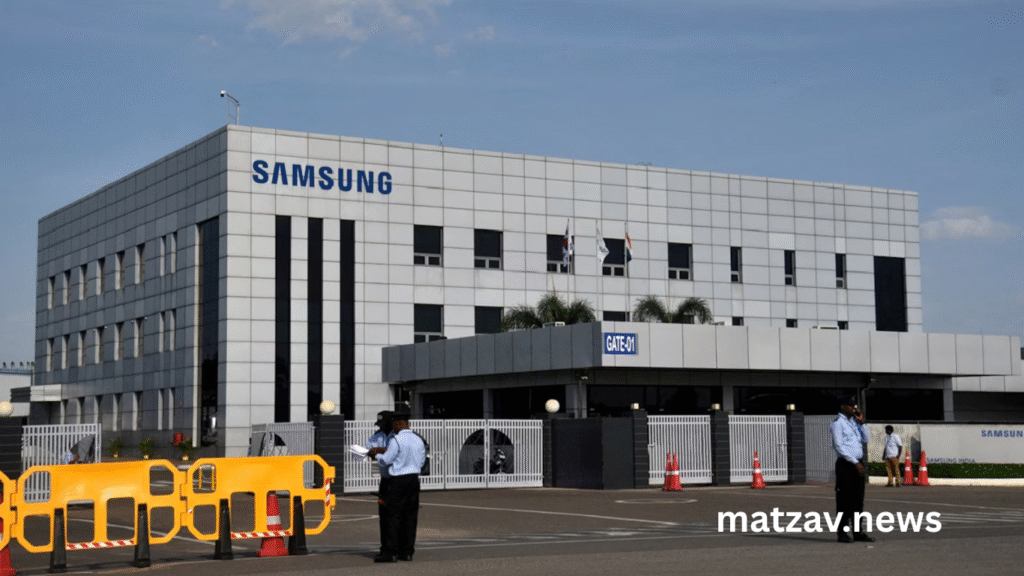In a dramatic turn in India’s ongoing financial regulatory enforcement, senior executives at Samsung India are now contesting a hefty tax evasion penalty of $81 million. This penalty, levied by Indian tax authorities, has stirred legal and corporate tensions, with Samsung asserting that the charges stem from a fundamental misinterpretation of commercial transactions. The case has quickly gained national attention due to its high financial stakes and the global stature of the tech giant involved.
The dispute has raised important questions about compliance practices, tax law interpretations, and the larger regulatory environment for multinational corporations in India. With Samsung India refuting the charges and preparing for an extensive legal battle, the case could set a significant precedent in how international firms are treated under India’s tax framework. Here’s a detailed look into what this case involves, its implications, and what might come next.
Background of the Tax Evasion Case
Origin of the Investigation
The $81 million penalty stems from an investigation initiated by the Directorate General of GST Intelligence (DGGI). The probe reportedly focused on alleged misstatements in Samsung India’s import and billing processes. Tax authorities allege that the company manipulated transaction records to avoid paying due taxes under the Goods and Services Tax (GST) framework.
Nature of the Allegations
According to the DGGI, Samsung India misclassified certain imported goods and services to exploit lower tax rates. Furthermore, authorities claim that the company failed to fully disclose taxable transactions, resulting in an underpayment of GST. These allegations involve complex assessments of financial documents and compliance with cross-border trade regulations.
Samsung India’s Response and Legal Strategy
Denial of Wrongdoing
Samsung India has vehemently denied the accusations, stating that all transactions were carried out in accordance with Indian tax laws and international trade practices. The company emphasized its commitment to regulatory compliance and transparency in its financial operations.
Read More : Nvidia CEO Unveils New Technologies to Protect AI Chip Lead
Filing Appeals and Legal Representation
In response to the penalty, Samsung India executives have begun legal proceedings to challenge the ruling. The company’s legal team has filed an appeal with the relevant tax tribunals, arguing that the DGGI’s findings are flawed and lack sufficient evidence. Legal experts suggest the case could take months, if not years, to resolve.
Implications for Corporate India

Regulatory Scrutiny of Multinational Corporations
This case is a glaring example of the heightened regulatory oversight of foreign businesses operating in India. The Indian government has been increasingly assertive in its tax enforcement, targeting corporations that appear to exploit legal gray areas.
Compliance Pressures on Indian Operations
The Samsung tax dispute highlights the importance of multinational firms strengthening their internal compliance mechanisms. It highlights the importance of accurate transaction reporting, robust audit trails, and proactive legal oversight to avoid regulatory penalties.
Government’s Stand and Enforcement Mechanism
Role of the Directorate General of GST Intelligence
The DGGI plays a crucial role in investigating high-value tax evasion cases. In this instance, the department claims to have conducted a thorough analysis of Samsung India’s tax filings and customs documents before levying the $81 million penalty.
Broader Efforts to Curb Tax Leakage
This penalty is part of a broader campaign by Indian tax authorities aimed at plugging revenue losses caused by tax evasion. The government has introduced stringent measures and digital tracking systems to identify discrepancies in tax filings and combat financial irregularities.
Impact on Samsung’s Brand and Market Standing

Shareholder Concerns and Investor Sentiment
While Samsung remains a dominant player in India’s electronics market, this legal tussle could affect investor confidence. Market analysts have flagged potential reputational risks, particularly if the case is prolonged or leads to further scrutiny.
Public Perception and Media Coverage
The widespread media coverage has already impacted public perception, casting a spotlight on Samsung’s compliance history in India. Although the company has not faced a significant consumer backlash, sustained negative publicity could erode brand trust over time.
Expert Opinions and Legal Perspectives
Complexity of Tax Interpretation in India
Legal experts note that Indian tax law, particularly the GST regime, is relatively new and still evolving. Many multinational companies face challenges in interpreting tax codes, which can lead to unintended non-compliance.
Need for Policy Clarity and Corporate Education
The Samsung case highlights an urgent need for more precise tax guidelines and better corporate education. Experts advocate for simplified tax rules and increased dialogue between regulators and businesses to minimize future conflicts.
Precedents from Similar Corporate Tax Disputes
Vodafone and Cairn Energy Cases
Samsung’s legal battle bears similarities to earlier high-profile tax disputes involving Vodafone and Cairn Energy. These cases, often drawn-out and contentious, revealed weaknesses in India’s tax arbitration process and spurred calls for reform.
Outcomes and Lessons Learned
In several of these cases, retrospective tax claims were eventually overturned or settled through international arbitration. These outcomes suggest that multinational firms may have viable recourse through legal appeals, albeit at considerable cost and time.
Future Course of Action for Samsung
Legal Timeline and Appeal Process
Samsung’s legal appeal is currently in its preliminary stage, with court hearings expected to take place over the coming months. Depending on the verdict, the case could move to higher tribunals or potentially the Supreme Court.
Strategic Corporate Response
Beyond legal measures, Samsung is expected to conduct an internal audit and strengthen its compliance protocols. The company may also initiate a public relations (PR) campaign to reassure stakeholders and maintain market credibility.
Broader Economic and Industry Context
India’s Push for Transparent Business Practices
The case aligns with India’s broader push to improve tax compliance and business transparency. The Modi administration has aggressively promoted regulatory reforms and digital governance tools to increase accountability.
Impact on Foreign Investment Sentiment
While enforcement actions like these aim to uphold the rule of law, they also risk deterring foreign investment if perceived as excessive or arbitrary. Balancing enforcement with a business-friendly climate remains a policy challenge.

Frequently Asked Questions
What is the Samsung India tax case about?
It involves an $81 million penalty imposed for alleged GST evasion through misclassification and underreporting of transactions.
Who issued the penalty against Samsung India?
The Directorate General of GST Intelligence (DGGI) issued the penalty after an investigation.
What has Samsung India said about the allegations?
Samsung denies any wrongdoing and claims all transactions comply with Indian tax laws.
How is the company challenging the penalty?
Samsung has filed a formal legal appeal and plans to contest the findings in court.
Will this case affect Samsung’s operations in India?
While operations remain unaffected for now, prolonged litigation could impact investor confidence and lead to increased regulatory scrutiny.
How common are such tax disputes in India?
They are not uncommon. Several multinational companies have faced similar tax challenges in recent years.
What are the legal options for Samsung?
Samsung can appeal to tax tribunals and, if necessary, escalate the case to higher courts.
Could this case set a precedent for future tax actions?
Yes, it may influence how similar cases are approached and adjudicated by Indian regulators.
How has the public responded to the case?
Public reaction has been mixed, with some calling for stricter enforcement and others cautioning against aggressive tax policies.
What are the broader implications for foreign companies?
This case serves as a cautionary tale, underscoring the importance of robust compliance frameworks for international firms operating in India.
Conclusion
The $81 million tax evasion case involving Samsung India underscores the increasing scrutiny faced by multinational corporations in India’s regulatory environment. While Samsung contests the charges, the outcome of this legal battle could reshape future tax enforcement and compliance strategies.
